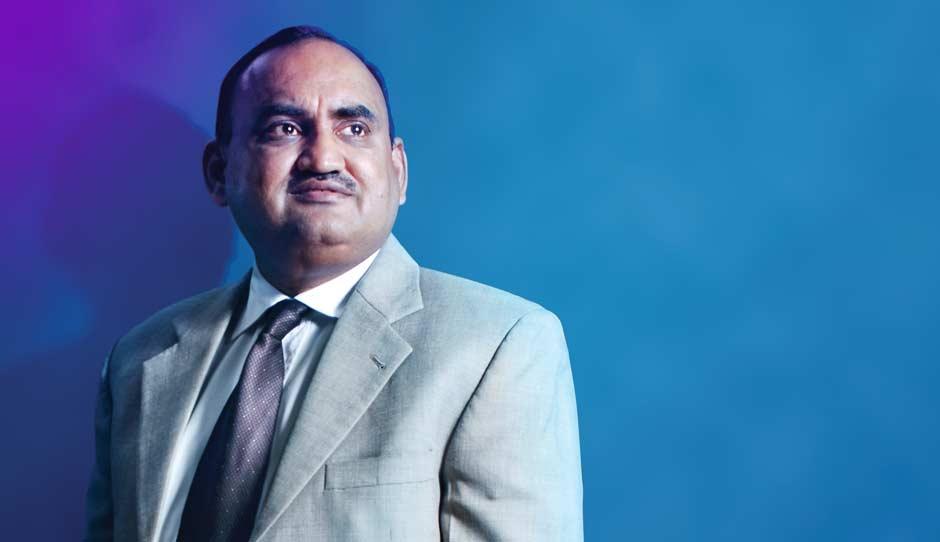The Making of the Medicine Man: Dr Dilip Surana
- BY Nikita Saxena
 In
In  13702
13702 0
0

Dr Dilip Surana literally grew up in Micro Labs. His father started the company in the early 1970s, and seeing him transform a small business venture into a large company over the years, sealed Surana’s choice of a career. He has clearly come good on his gene pool. Micro Labs is today a Rs1,500-crore (FY11-12), 6,000 people generic drugs company. Now, Dr Surana is formulating a new success story with his fast-growing exports business.
I regret that I couldn’t do an MBA. A part of me wonders if I could have done more for the company if I had that degree.”
Micro Labs was started as a small manufacturer of pharmaceutical preparations in 1973 in Madras, as it was then known. In those days, there was a great demand for quality pharmaceutical products and little competition. My father, a pharmaceutical distributor then, thought this was an opportunity that ought not to be missed. Because the market was growing in the early years, establishing the company wasn’t very difficult. My own entrepreneurial instincts were honed by the environment at home.
My father was a first-generation entrepreneur. That gave me the chance to watch closely how Micro Labs grew from a start up into a company to be reckoned with. Not surprisingly, he was my role model, and I wanted to carry his baton when I grew up.Although I was quite involved in the business during my college days, I officially joined Micro Labs in 1983, after completing my Bachelor degree in commerce from Bangalore. At that time, the company was overloaded with orders. So, we opened two new manufacturing facilities in Hosur, Tamil Nadu. My brother also joined the company a few years later. Those years were frenetic with activity and growth. That is probably why I couldn’t extricate myself from the business to do an MBA. I regret that even now. I had initially planned that I would go back to studies after a few years. That delay has lasted three decades now! But, I couldn’t imagine not being in the thick of action. Yet, I have to say—a part of me wonders till today if I could have done more for the company if I had an MBA.
In the mid-1990s we decided to branch out into specialisations like diabetology, cardiology and neurology. Even in these specialisations, we continued to focus on generic drugs as our core competency. My philosophy has always been to become the master of one trade first, before exploring the research and development of new drugs. Through the 1990s, we grew briskly. But that decade brought in significant changes in the pharma industry. Commensurate with the demand for medicine, competition grew steadily too. International players started looking at India and before the TRIPS (Trade Related-aspects of Intellectual Property Rights) agreement, India was a relatively patent-free market. Compared to the developed countries, we still have very few patents registered here. But, it’s growing. Still, patents aren’t a threat to our business yet because the disease pattern in our country is very different from that of the western countries. Most patented drugs cater to lifestyle diseases which are not as common here, as of now. Managing competition—especially from the many smaller players who have come up strongly in the generics market—has been a bigger worry for us. We certainly had to double our efforts to retain our market share, and grow over the last decade.
We have a two-pronged strategy at Micro Labs—proactive and reactive. Being proactive enables growth, and taking on reactive positions ensures sustainability. As far as being proactive goes, we need to keep exploring new markets, both domestically and for exports. Plus, we have to create a very strong brand value, something we didn’t need to focus on as much before. Those are currently our two focus areas. We are confident we can craft a good brand.
We had great success in promoting Dolo 650, our branded anti-pyretic drug. In 2010, it received Best Managed Brand Award by CMARC, a market research agency. More than anything else, becoming an international player of significance is my personal goal now. Our first export to the US a year and a half back set that in motion for us. That was a big deal—the United States is a market very few foreign players get access to. Today, our Goa plant exclusively focuses on export, and exports contribute nearly Rs450 crore to our turnover. In the last few years, we have made inroads into all five continents. There’s still a long way to go.
Four things are the pillars of any successful business—quality, ethics, customer satisfaction and most importantly, people. It goes without saying that your team is indispensable to the company’s survival and growth. We treat people as our primary capital. Of course, in a large organisation, it’s not easy to completely do away with a hierarchical structure but we have tried to ensure that this hierarchy is merely structural, not cultural. Communication plays a key role in making this happen. We’ve set up an effective system for the free-flow of communication to ensure even a front line employee’s concerns and achievements reach the top management.





























Add new comment